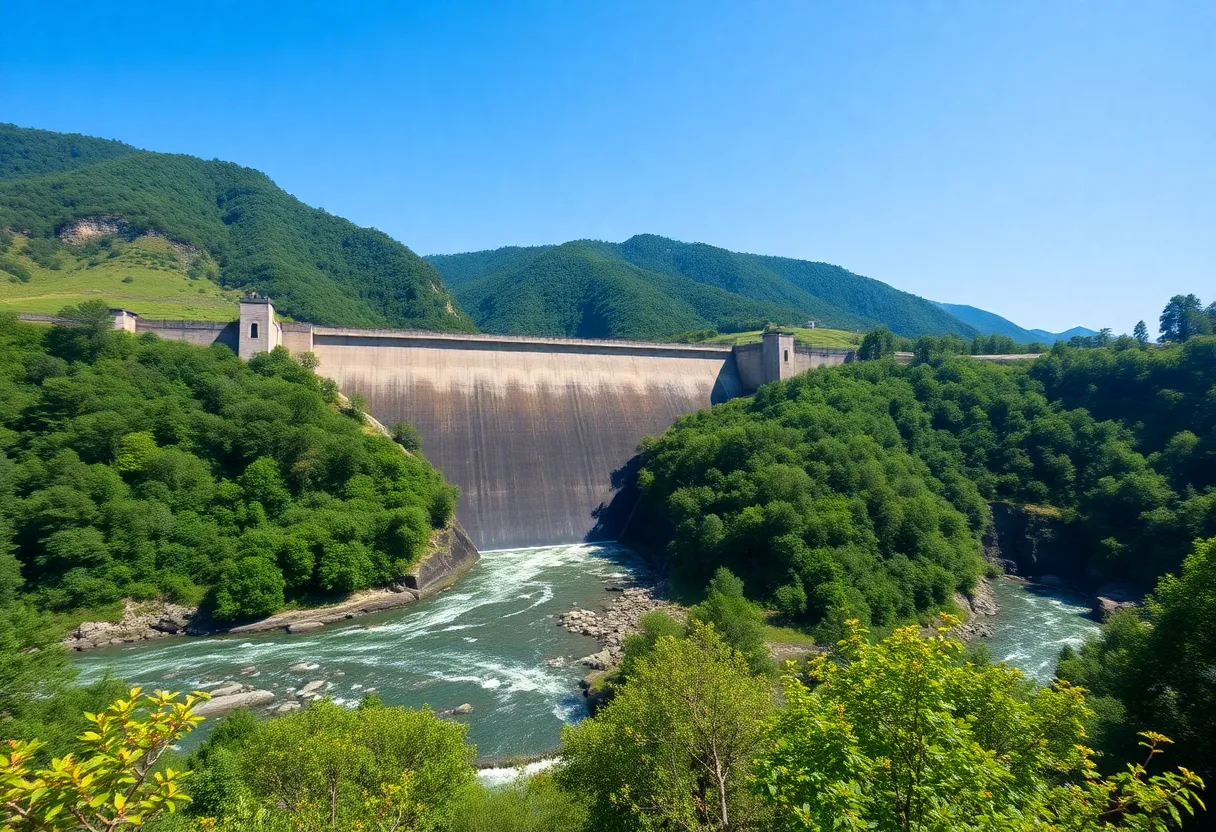

The hydroelectric dam in Michigan plays a crucial role in energy generation and local ecology.
Consumers Energy is currently evaluating the future of its 13 hydroelectric dams in Michigan, considering options such as selling, removing, or relicensing them. With licenses expiring soon and rising operational costs, the utility is deeply engaging with local communities and stakeholders to assess the potential impacts on the environment and economy. Public sentiment will play a crucial role as residents voice concerns regarding recreation, tourism, and aquatic habitats. The decision will shape Michigan’s energy landscape as the utility transitions to cleaner energy sources by 2025.
In Michigan, the conversation around energy generation is heating up as Consumers Energy examines the fate of its 13 hydroelectric dams. This important decision-making process could stretch all the way until 2025, creating quite a buzz among residents who are closely following developments.
Consumers Energy is currently considering several options for its hydroelectric dams: to sell, remove, or relicense them. The utility emphasizes that there is a lot to consider, including comprehensive proposals and valuable community feedback that will play a significant role in shaping the future of these facilities.
At present, the 13 dams contribute less than 1% of the energy consumed by the utility’s customers. This is a tiny slice of the energy pie, and as many are saying, it begs the question: is it worth keeping these dams running?
Most of the dams have licenses expiring in 2034, while the Calkins Bridge Dam has a bit more time, with a license set to expire in 2040. This timeline adds to the urgency of the decision, as the utility aims to stop burning coal for electricity generation by the end of 2025, shifting towards cleaner natural gas and renewable energy sources.
The Vice President of Generation Operations pointed out that operating hydroelectric facilities is becoming increasingly expensive—nearly nine times the cost of other energy generation methods! This costliness is one reason why Consumers Energy is seriously weighing its options.
In an effort to gauge community sentiment, Consumers Energy held public meetings last year and plans on more this summer. Residents have expressed their worries about potential dam removals and the impacts they might have on recreation, tourism, and even aquatic habitats. The community is anxious about what the potential decommissioning of dams could mean for local economies, especially those that rely on activities around Lake Allegan.
Recent studies show that relicensing the dams could set up Consumers Energy with a bill of around $1.4 billion. On the flip side, if they choose to decommission, it could still cost a hefty $631 million. These are significant figures that are not lost on the utility, especially when considering the financial burdens this could place on their 1.9 million customers.
To further assess their options, Consumers Energy has kicked off a process to bring in proposals from potential buyers for the dams. Initial bids are expected by March 15. They have partnered with a consulting firm to manage this process, ensuring that it runs smoothly as they sift through the responses.
Residents have emphasized how vital the reservoirs formed by the dams are for both economic and recreational opportunities. Discussions about the potential effects of dam removal are mixed: some express concerns about local fisheries and ecological conditions, while others hope to collaborate with Consumers Energy to keep the dams active, showing a willingness to invest in necessary improvements.
As the Michigan Public Service Commission keeps a watchful eye on Consumers Energy’s plans for improvements, the dam deliberations certainly promise to be a hot topic in the coming years. With so much at stake for both the environment and the community’s well-being, it’s clear that these decisions will resonate for years to come.
Stay tuned for further updates on how this issue unfolds! The clock is ticking, and we probably won’t have to wait too long until we see what happens next.
News Summary Michigan's upscale remodeling market is thriving, blending modern luxury with historic charm. Demand…
News Summary A new HGTV series titled 'Condemned' will debut in summer 2025, focusing on…
News Summary The heartbreaking death of 5-year-old Thomas Cooper in a hyperbaric chamber explosion at…
News Summary A Pontiac mother has been arrested for abandoning her three children in deplorable…
News Summary Michigan's 'Pothole Payback' contest invites residents to share their pothole damage experiences for…
News Summary In a controversial move, the University of Michigan has announced the closure of…